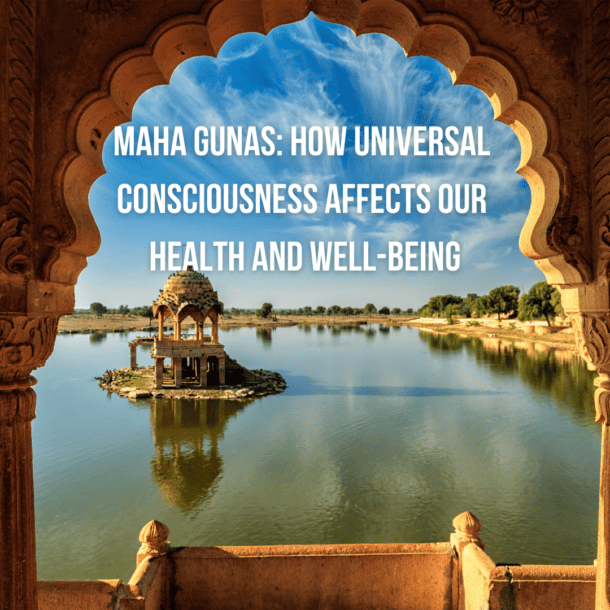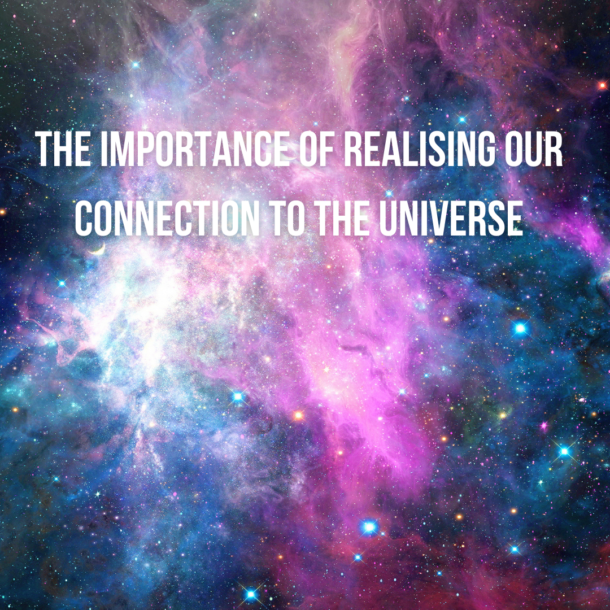
The importance of our mind-body connection
Our body and mind are inextricably linked. That’s something which Western medicine is only just beginning to understand and accept, but it’s been at the heart of Ayurveda from the very beginning — more than three thousand years ago.
Balancing our mind, body constitution (prakriti), and life forces (doshas) is what Ayurvedic medicine is all about. Everything is interconnected.
Throughout the next few blogs, I’m going to take a closer look at what that means so you’ll hopefully gain a much greater understanding of how vitally important the mind-body connection is in your own life.
The three aspects of Self
What are the three aspects of Self?
Body, mind, and spirit.
All three are equally essential to our health and well-being. If any one of them is disturbed, it can open the doorway to sickness and dis-ease.
How can the mind negatively impact the body?
Think of it like this.
Our body is the vehicle we inhabit, and if we take good care of its mechanics, it should remain strong and vital for the whole of our life.
But a vehicle needs a driver, and if the driver is unhealthy and doesn’t focus on the road ahead, very bad things can happen. The vehicle can become slow and unreliable and eventually break down, or it might crash and suffer catastrophic damage.
Our mind is the driver of our body.
In the same way that our body can accumulate toxins (ama) that will eventually lead to physical illness, our mind can also accumulate ama, leading to the same result.
Take a condition like anxiety. When we’re anxious about something, it puts our nerves on edge. We might feel sick in our stomach, develop a headache, start to shake. If our anxiety becomes chronic (i.e. longterm),those symptoms will inevitably grow worse, turning into skin rashes or ulcers or something much more severe.
Unresolved emotions like anger or grief can do that as well. They fester inside the mind, spill out into the body, and eventually manifest into disease.
Every cell, tissue, and physical and energetic pathway in our body is positively or negatively affected by our emotional state and the state of our mind.
That’s why a calmer, peaceful, clearer mind is crucial to achieving and maintaining a healthier, stronger, more capable body.
Where is your mind situated?
Not where you might think it is!
In Ayurveda, the mind is a channel; in Sanskrit, it’s called ‘mano vaha srotas’.
The mano vaha srotas isn’t in the head; it’s rooted in the heart and the ‘ten great vessels’ that channel subtle energy throughout the body.
No other organ connects with the body as wholly as the mind. That’s one of the reasons why, when we practise pranayama breathing to calm and cleanse our mind, we’re also simultaneously calming and cleansing the organs, tissues and cells in our physical body. Beyond that, we’re extending our mind into the universal consciousness, but I’ll write more about that in my next blog.
Just as the mind directly influences the body, the body directly influences the mind.
One of the easiest ways to explain this is by thinking about our five senses – sight, hearing, smell, taste, and touch.
Every second of every day, even while we sleep, our five senses are physically processing everything that goes on around us. Everything they experience is input into our mind, and our mind responds accordingly, and often un(or sub)consciously.
There are also energy points on our skin called ‘marmani’ that are connected to the pathways in our body and can be used to restore balance in our mano vaha srotas.
The difference between our mental and physical constitution
According to Ayurveda, our physical constitution (i.e. our unique balance of Vata, Pitta, and Kapha) is fixed from the moment we are conceived.
However, our mental constitution (called the ‘manas prakriti’) is fluid, and it can change (for better or for worse) as our diet, lifestyle, and mental attitudes change. As we get older, if we consistently make better decisions about our health, emotions and the company we keep, our manas prakriti grows stronger. If we make poor decisions, it grows weaker, just like the doshas that govern our body.
In a similar way to our five senses, our doshas can have an effect on our manas prakriti too.
- A Vata imbalance can cause mood changes, loss of focus, and anxiety.
- A Pitta imbalance can cause excessive negative emotions like anger, jealousy, and irritability.
- A Kapha imbalance can cause laziness, depression, and selfishness.
- I’ll go into more detail about those in a future blog.
How to strengthen the mind-body connection
As I mentioned at the beginning, it’s all about balancing your three aspects of Self.
- Follow a healthy lifestyle (diet, exercise, sleep, and rest)
- Regularly practice a technique that will help you calm and relax your mind, like pranayama, meditation, yoga, or mantra
- When negative emotions arise, find a strategy for dealing with them. (I’ll talk about that in a future blog too, but if you need my help in the meantime, please get in touch.)
- Treat yourself, everyone, and everything around you with kindness and compassion. Until next time, to your enduring health and happiness in Ayurveda.







